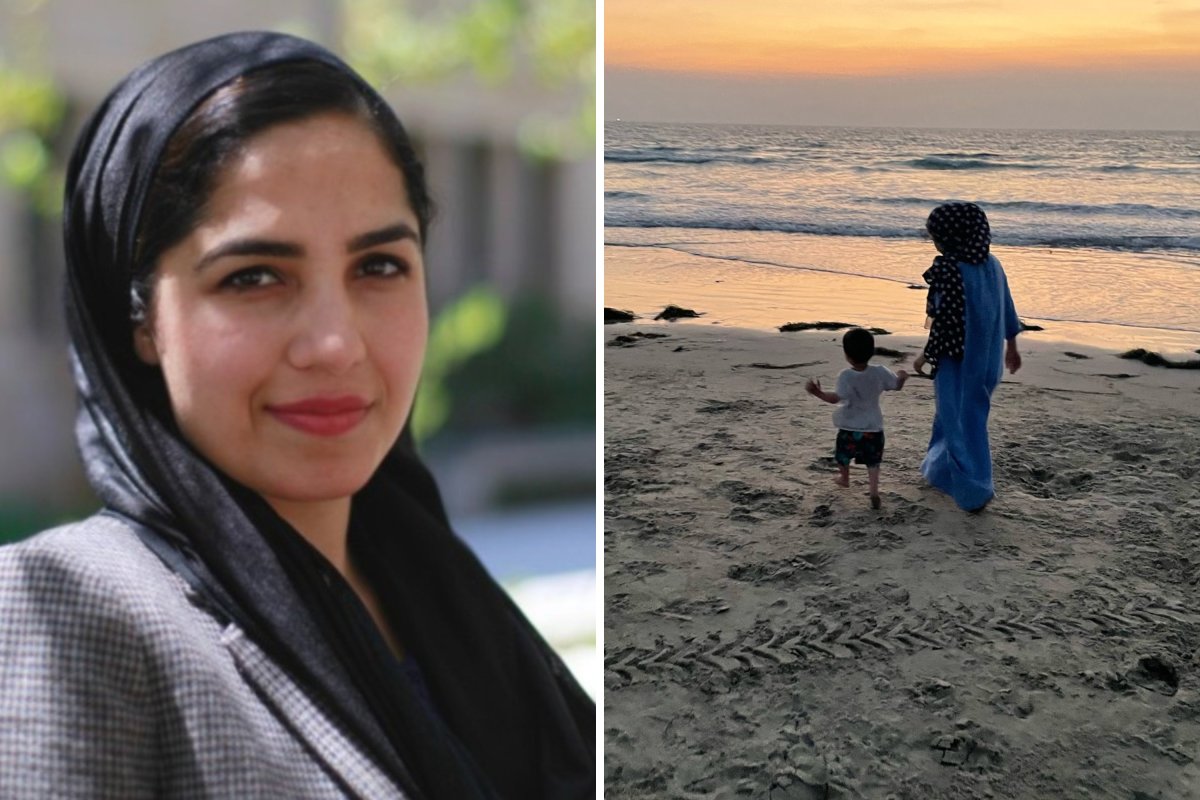A few days of ceasefire cannot stop the trauma of war that Gazan children have faced throughout the decades of this conflict, including in the past horrifying seven weeks.
As a child born and raised in the decades-long wars in Afghanistan, ceasefires were meaningless to me, for they promised the inevitable return of war. I wanted an end to the war, something that I never experienced as a child.
To this day, thousands of miles away, images of innocent Gazan children drenched in blood bring back memories of my childhood. No matter how far I escape from war, memories of it continue to haunt me.
When I was seven days old, the wing of a fighter jet entered the window of where I was asleep, shattering the glass over my newborn skin, as I lay asleep through that first encroachment of war into my new life. In the following months and years, war raised me.
I walked on dead bodies to run for refuge, closed my eyes and ears to its deafening sound, I heard the dying cry for help and their silent end. I knew not to look back.
Yet, decades later and thousands of miles away, living in the United States, I feel the pain of Gazan children who have nowhere to run from bombs and rockets that take their lives today or their peace forever.

Children are paying the highest price for this war, and we must put an end to it for their sake.
We have a saying in my family: You don't "escape" a war, you are either killed instantly or destroyed by it forever.
While they might not remember most details, the trauma of war will swallow their present, blur their sense of peace, and their trust in humanity. It will destroy them for generations to come.
Palestinian and Israeli children of today will remember and will pay for the trauma and violence of this unwinnable, inhumane war.
At around 2 a.m. in the morning yesterday, I lay awake, fearing that this war would escalate throughout the region; that children once again would die unjustly.
As a four-year-old, I spent most nights dreading the coming of jets, wondering if the world cared about what was happening in my country.
The jets usually started around 2 a.m., a time that nobody could sleep, a time that I still tend to wake up. We no longer tried to escape from the bombs, we knew that was a futile endeavor.
But we could avoid rockets if we stayed in the corridor of our apartment, because the corridor was windowless, surrounded by our rooms. If a rocket hit from the sides, it would enter the rooms of our home but not the corridor.
Soon enough, a jet whirred above. I can still hear its sharp piercing sound in my sleep decades later. It carried with it the news of so much death. I just prayed that it was not me or my family this time.
There were two jets now. I tried to trace which direction they were coming from so we could decide which part of the house was the safest that night. A rocket hit nearby. With my heart pounding, as loud as the chaos of war around me, I ran to the corridor.
My parents and I woke up our siblings, bringing their nightmares to reality. My mother ran to the girls' bedroom to grab my four sisters, Baba to my brothers' room. We all gathered in the corridor.
With the jets only getting louder, and the rockets going both ways, I hung tight to my Baba's lap, the safest place I could find. My parents hugged all seven of us.
I looked at Baba, I cannot forget his face that night—helpless and apologetic, as if he was the reason we were suffering, as if he, as a father, had failed to provide us with safety. Even at four years old, I knew this was not true.
Restless and scared of the approaching sound of terror, my mother ran to the window to see where the rockets were coming from. If it was too close, we'd have to come up with an alternative plan—running to the basement was our last resort, but there was a risk of dying under the rubble if our apartment block collapsed. This one was certainly too close.
The rockets were coming from the right side. This time, it was us. A jet whirred right above our home, its sound grew louder. Within seconds, a bomb hit the corner of our block.
Even today, I can hear that bomb when I close my eyes. I still feel as if the ground beneath me is trembling. I hold onto it, as my head spins, worried that the earth is fleeing away from my feet.
Prior to that night's bombings, Baba had replaced the window glass with plastic to protect us from getting hurt by broken glass.
Unfamiliar with the thud sound the plastic made with each explosion, we could not trace whether the bomb hit our neighbor upstairs or the neighbor next door. All we knew was that it was too close to our home.
What we did not know was whether the apartment building was going to collapse on us. "Should we run away or stay?" we wondered.
The chaos within us now filled the apartment. My sister began to cry: "This is enough, this is enough, I can't live like this. Let this be the end."
Another sister, her hands together in prayer, paced across the corridor. She didn't cry easily and she almost never paced; others recited ayat-ul-Kursi, a verse of the Quran that we recited to protect us from all evil.
Unsure if the bomb had hit the entrance, we decided not to risk opening the door—doing so could lead to a fire inside the house. So there in the middle of our corridor, the house still shaking, in Baba's lap, I closed my eyes to the sound of further explosions, ever nearer.
That night, I saw death from up close and vowed to end war's grotesque shadow from the lives of children that it swallows.
But here I am, an American, a lawyer, a mother. Still battling with memories of war that have almost swallowed me whole. War once again wins, as the Ukrainian church behind my house gathers hundreds of worshippers in prayer and my Palestinian neighbor quietly mourns the loss of twenty family members killed in Gaza last month.
Once again, I sit on my bed at 2 a.m. in the morning, closing my eyes and ears to the hoarse sound of war coming from places far away. This time, I say it loudly to a quiet, empty room: Please, put an end to this man-made nightmare.
Wazhma Sadat is a lawyer based in Washington, D.C., a PD Soros and Public Voices Fellow with The OpEd Project.
All views expressed in this article are the author's own.
Do you have a unique experience or personal story to share? Email the My Turn team at myturn@newsweek.com
Uncommon Knowledge
Newsweek is committed to challenging conventional wisdom and finding connections in the search for common ground.
Newsweek is committed to challenging conventional wisdom and finding connections in the search for common ground.
About the writer
Wazhma Sadat is a lawyer based in Washington, D.C., a PD Soros and Public Voices Fellow with The OpEd Project
To read how Newsweek uses AI as a newsroom tool, Click here.






